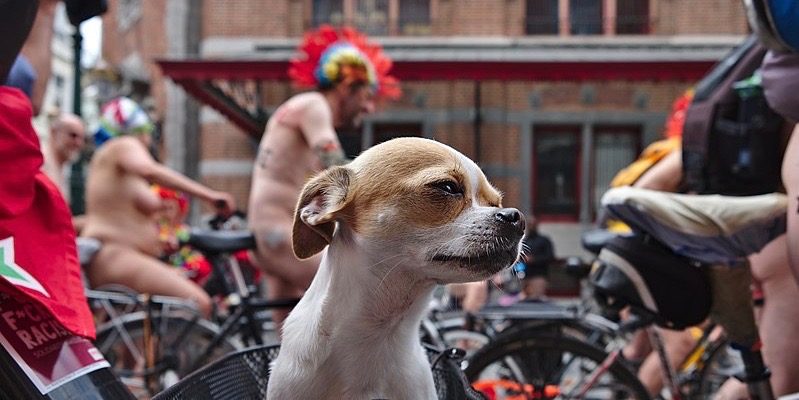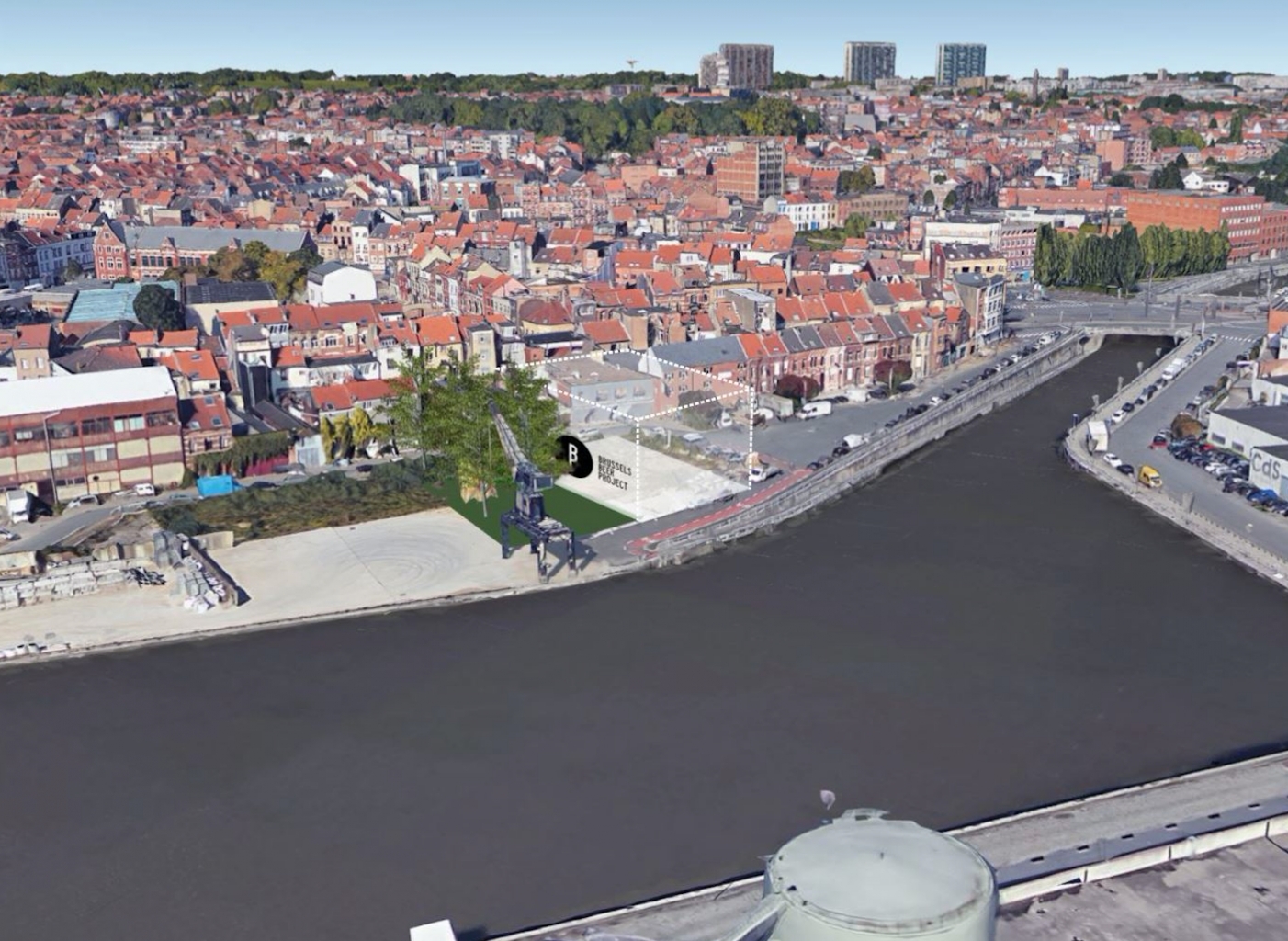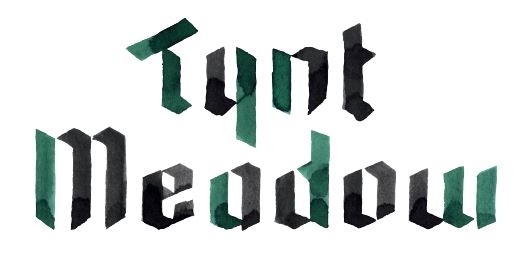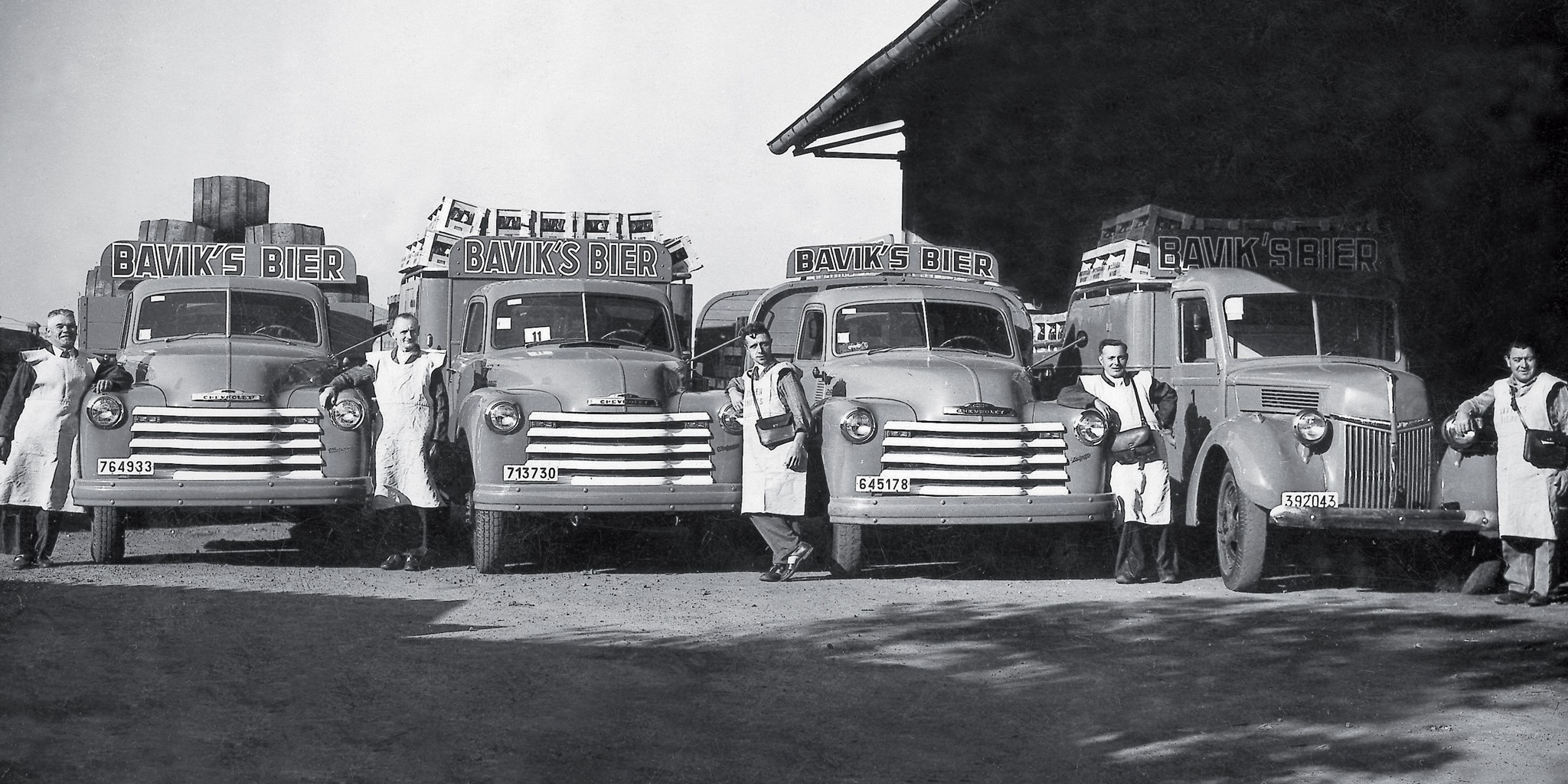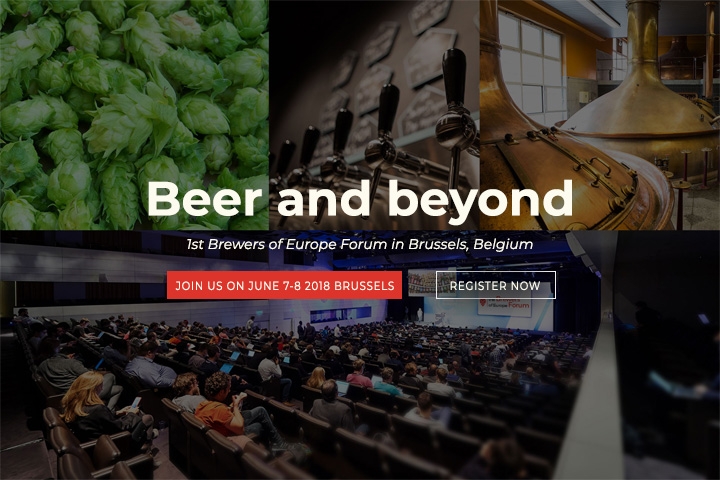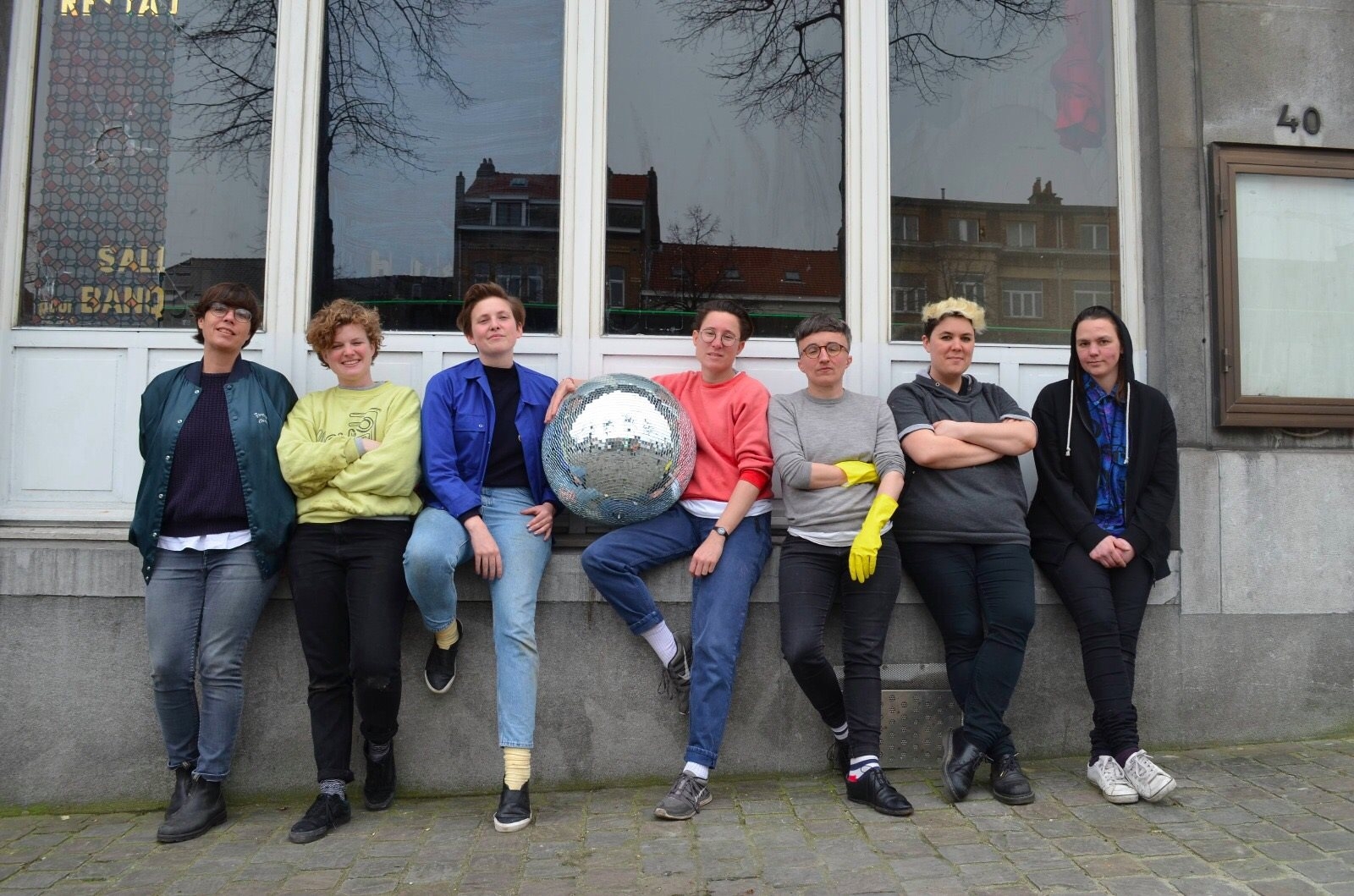Feature Photo by Trougnouf / CC BY
As the summer of 2018 continues apace, Belgium recovers from a heat wave. President Trump raised the temperature on his visit to Brussels for a NATO summit in July, with thousands of people gathering under slogans reading “Make Peace Great Again”. Participants of the annual Belgian ‘World Naked Bike Ride’ slapped on the sun cream and cycled naked through the streets of Brussels, protesting against oil dependency and pollution generated by vehicles.
Facebook caused flaming reactions when they took down a series of social media posts by the tourist board of Flanders who were running a two-year programme promoting the Flemish masters Rubens, Bruegel and Van Eyck. The Baroque paintings, Facebook argued, featured voluptuous women and naked cherubs, thus contravening their guidelines. “Your cultural censorship is making life rather difficult for us,” wrote most of the museums of Flanders in a collective open letter to Mark Zuckerberg (read here).
The Belgian footballers were on fire too. Their 94th-minute stunning team goal involving Courtois, De Bruyne, Meunier, Lukaku and Nasar Chadli was a fitting way to see off an impressive Japanese side. De Bruyne’s confident long-range shot to go two-nil up against the Brazilians—putting Belgium into a World Cup Semi-final with France—caused eruptions in living rooms, bars and city squares across Flanders, Wallonia and Brussels.
There were also ‘hot takes’ in the world of Belgian beer. Here are some stories which may be of interest to Belgian beer enthusiasts, in no particular order, from the last few months:
1. ENGLISH BREWERY LAUNCHED CROWDFUNDING CAMPAIGN TO BUILD BREWERY FOR CANNED LAMBIC
On 28 June, Chorlton Brewing Co from England sent out a newsletter detailing their plans to open a branch of its brewery in Brussels specifically to “brew regional speciality sour beer for worldwide distribution.”
Chorlton—who claim that they were the first brewery in Britain to concentrate exclusively on sour beer production and that they conceived the Sour IPA beer style—want to produce Lambic in the Payottenland. “Some people no doubt will hate the fact we’re screwing with tradition, and others will love it,” they wrote in the newsletter. “That’s how we like to do business.”
Their intentions are to “fuse some of the oldest and most revered brewing techniques in the world with modern dry-hopping techniques.” Perhaps most attention-grabbing was their choice of packaging: “And then we’re going to put it in cans.”
Then, on 28 July, they tweeted: “We’re dropping cans for bottled lambic only,” the reasons for which they explained in another tweet on 30 July, that “popping the cork on a bottle of lambic is part of the experience and justifies the high value of the product.”
Read the brewery’s newsletter which sets out details of the investments required: Here.
2. BRUSSELS BEER PROJECT TO BUILD NEW BREWERY IN BRUSSELS
Brussels Beer Project have announced that they will construct a new brewhouse on the quays of the Brussels canal, bringing all their brewing in-house for the first time since they started. The brewery is set to be operational by 2020. As part of the expansion, they’ll be producing wild ales and packaging certain beers in cans.
Eoghan Walsh of Brussels Beer City spoke to Olivier de Brauwere and Sébastien Morvan to find out more about the impact of the project on Brussels’ canalside area and how the expansion fits in to the recent growth curve of breweries in Brussels: Here
3. NEW TRAPPIST BREWERY IN ENGLAND
Mount St Bernard Abbey in Leicestershire have released Tynt Meadow, an English Ale of 7.4% ABV. It’s the UK’s first Trappist beer, developed with support from other accredited Trappist breweries, including those in Belgium.
James Beeson of the Morning Advertiser reported that Father Erik Varden of Mount St Bernard was advised against brewing a “Belgian imitation beer”, encouraged instead to “make something that draws on local tradition.”
Read Beeson’s full article here.
4. BEAVERTOWN GOES BELGIAN
Beavertown sold a minority share in their company to Heineken. The Dutch brewing company is set to invest €53M in the North London-based brewery for an undisclosed stake in the business.
One part of the story of Beavertown’s growth curve rarely discussed is the partnership established recently by Beavertown with Brouwerij De Brabandere, a family owned brewery in Bavikhove, West Flanders.
At first glance, it seems an odd pairing. De Brabandere do not have much experience with hop-forward, low alcohol, dry-hopped beers designed to be consumed as fresh as possible. Rather, they are a family brewery producing a lager (Bavik Super Pils), a range of beers of mixed fermentation (Petrus Oud Bruin, Petrus Aged Pale etc.) and several top-fermented, higher-alcohol, bottle-conditioned ales of a traditional ilk (Kwaremont, Ezel, Wieze).
Capacity and high-tech brewing equipment are likely to be the main factors behind the partnership, as well as the relationships established by the Belgians with UK brewers during the time Camden contract brewed in Bavikhove.
Perhaps De Brabandere can learn as much from Beavertown during the arrangement as the London brewery seem set to gain in capacity?
Full information on the Belgian move from Beavertown is here.
5. CHINESE HOEGAARDEN
Hoegaarden produce 1.3 million hectolitres of beer, by far the most famous of which is their witbier, one of Belgium’s most well-known brands. Only 8% of beer produced at Hoegaarden stays in Belgium, the remainder exported to markets around the world by the brand’s owner, AB Inbev. As and from 1 July 2018, a large quantity of its production—reported to be 200,000 hectolitres—has been moved to a facility in China.
Pascal Ghoos (the trade unionist for ACV) says that Belgian staff are currently working 7 days a week in Belgium. After production moves to China, that will become 6 days a week until the end of the summer. Witbier sales typically drop dramatically as the autumn approaches, so after that, there may be changes. “Some 170 people work in the brewery,” says Ghoos. “But due to the reduction of volumes, the temporary contracts will certainly be stopped.”
Full report from Flemish publication, Het Laatse Niuews is here.
6. SAISON IS SWEET. AND IT’S FROM LIÈGE.
In his ‘Lost Beers’ article entitled ‘What was a 19th century saison really like?’, Roel Mulder researches the history of the style and challenges some preconceptions, including the story of the ‘Belgian farmhouse ale’.
Mulder finds saison mentioned first in the industrial city of Liège, a beer he writes contained “mainly malted spelt and unmalted wheat, and because of its low attenuation it was relatively sweet.”
In addition, he doesn’t find much information on saison in Hainaut: “It is hard, very hard to find 19th century evidence of saison being a regularly brewed beer type there. The earliest mention of saison in that province is in Charleroi, in 1858 where a pub called Le Petit Caporal promised two litres of ‘bière de saison’ to anyone who would reach a ‘nine four’ in a bowling game.”
Full article here.
7. BAVARIA CHANGES NAME TO ‘SWINKELS FAMILY BREWERS’
The Dutch brewing company, Bavaria N.V.—who acquired control of Palm Belgian Craft Brewers on 10 May 2016—have changed their trading name to ‘Swinkels Family Brewers’.
The breweries controlled by Swinkels Family Brewers include Rodenbach, Palm, and De Hoorn in Belgium, Dutch brewery de Koningshoeven (La Trappe) and the Ethiopian brewery Habesha. Swinkels Family Brewers say that “each have their own identity and will keep their own name,” becoming part of Swinkels Family Brewers Holding N.V.
The move, Swinkels Family Brewers say, offers the brewer the opportunity to expressly position themselves as “a true and independent family brewery.”
Full story (in Dutch) on the Misset Hoerca site here.
8. NEW FRENCH LANGUAGE BEER MAGAZINE
Paul Walsh, publisher of the 64 page glossy Belgian Beer and Food Magazine, is launching a new magazine called Bières et Mets, a French language beer and food magazine. [Disclosure: Breandán of Belgian Smaak writes for Belgian Beer and Food Magazine].
Check out the crowdfunding video to find out more about the project. Paul’s unique French is worth the watch alone: Here.
9. BREWERS OF EUROPE FORUM
The Brewers of Europe forum, a brewing conference with over 35 educational seminars across 5 different themes, took place in Brussels in June, with participants attending from a wide range of countries. The forum included a trade show and a networking event. Content covered a range of topics from cultivating your own yeast and the science of food pairing to targeting millennials and reducing your environmental footprint.
The impressive list of speakers included: Tim Webb (EBCU), Carlos Britto (CEO, ABInbev), Mikkel Borg Bjergsø (Founder and CEO, Mikkeller), Frank Boon (Boon), Christina Schönberger (Technical Manager, Barth-Haas Hops Academy), Steve Hindy (Co-founder & Chairman, Brooklyn Brewery), Jasper Cuppaidge (Founder & CEO, Camden Town Brewery), Roger Ryman (Brewing Director, St. Austell Brewery), Frédérique Harmegnies (R&D Manager, Meura), Michel Moortgat (CEO, Duvel Moortgat), Peter Bouckaert (Co-owner & Brewmaster, Purpose Brewing and Cellars) and Richard Fuller (Corporate Affairs Director – Fuller’s).
Rachel Arthur spoke to some attendees of the conference for Beverage Daily about small versus big: Here.
10. SIX-IN-A-ROW FOR BOON AT WORLD BEER CUP
The Belgian lambic brewery, Brouwerij Boon, has become the only brewery in the world to win six consecutive gold medals at the World Beer Cup, considered by many to be the world’s most prestigious beer competition. The Oude Geuze Boon VAT 108 was awarded the gold medal in May in the ‘Belgian-Style Sour Ale’ category.
The competition is organized every two years by the American Brewers Association. The beers are judged through a blind tasting. 8234 beers brewed by 2515 breweries from 66 countries took part in the World Beer Cup 2018.
“The organizers served our Oude Geuze Black Label as the only non-American beer during the award ceremony,” said Frank Boon. “We are extremely proud of that.”
2008 Gold Award: Oude Geuze Boon
2010 Gold Award: Geuze Mariage Parfait – Silver Award: Oude Geuze Boon
2012 Gold Award: Oude Geuze Boon
2014 Gold Award: Oude Kriek Boon – Bronze Award: Oude Geuze Boon
2016 Gold Award: Oude Geuze Black Label Boon
2018 Gold Award: Oude Geuze Boon VAT 108
Full story (in Dutch) here.
11. BXL BEER FEST—UPCOMING BEER FESTIVAL
The organisers of the Bxl Beer Fest—Jean Hummler, Kevin Desmet, Olivier Desmet and Vincent Callut—are gearing up for the second instalment of their festival which takes place on August 25-26 in Tour & Taxis (Havenlaan 86C, 1000 Brussels). [Disclosure: Breandán of Belgian Smaak will be pouring beers at the festival on behalf of the brewery he co-founded, Siphon Brewing].
Over 2 days, 60 breweries from Belgium, the U.S., Canada, Italy, the U.K., Spain, France, Germany, the Netherlands, Sweden, Poland and Switzerland will pour 350 beers for festival-goers. Some of the names pouring include Cantillon, 3 Fonteinen, Dochter van de Korenaar, ‘t Verzet, Jester King, Burnt Mill, Kemker, Tommie Sjef and Beerbliotek.
More info on Bxl Beer Fest here.
12. BBC FOOD PROGRAMME COMES TO BELGIUM
New Chair of the ‘British Guild of Beer Writers’ and respected beer writer Pete Brown took Dan Saladino of BBC Radio 4 to Belgium to help him understand why Belgian beer is so influential. As is to be expected from BBC Radio 4, the production quality is excellent and the structure well-thought out.
With guest appearances from Tim Webb (Good Beer Guide Belgium) and Regula Ysewijn (Flemish Bake Off) and visits to Chimay, Het Anker, Cantillon and Bokkereyder, ‘The Mothership of Brewing: Beer and the Belgians’ is well worth a listen here.
13. NEW LESBIAN BAR IN BRUSSELS
In early May 2018, behind a jumble of corroded neon signs touting a long-departed Greek restaurant, a group of artists and activists opened something Brussels hadn’t seen for 15 years: a lesbian bar, run by and for the city’s lesbian community,” writes Eoghan Walsh on Brussels Beer City.
The bar is called ‘Mothers & Daughters’, a pop up bar which the owners describe as “an art space, a safe, inclusive, feminist, queer, lesbian place – run by lesbians, queers and feminists for lesbians and their friends”.
You can follow them on facebook here.
14. BELLE VUE IS BACK
Matt Curtis from Good Beer Hunting reported last month that AB Inbev is set to revive Belle Vue-branded ‘Selection Lambic’ after an almost 20-year absence.
“The two re-released beers announced this June—an Oude Gueuze and a Kriek—are expected to debut in October 2018, following their discontinuation in 1999,” writes Curtis.
The move will raise some interesting questions about which lambics might be carried by tied AB Inbev houses and whether the production of Belle Vue is or is not following traditional lambic processes. Furthermore, it is uncertain, given the diverse views of its members towards AB Inbev, whether HORAL—the High Council for Traditional Lambic Beers—will permit Belle Vue to join the club
Full story from Curtis is here.
Press release from ABInbev (in Dutch) is here.
15. BELGIUM BEAT ENGLAND. TWICE.
Belgium beat England at the World Cup. Twice. In doing so, they achieved their best ever finish at the competition.
Enjoy goals from Thomas Meunier and Eden Hazard as Belgium secure third place in the world: Here.
“PORTIE GEMENGD”
Other stories about Belgian beer worth a look:
→ Beer and Mystique—Ardent Belgo-phile Joe Stange muses on the magic and fantasy that runs through Belgian beer: Here.
→ Found in Translation—Evan Rail investigates what “Belgian Beer” means globally: Here.
→ Elephant Trunk Stem Glass—Huyghe have released a new 33cl Delirium glass. Do you like it?: Here.
→ Brussels Lambic IPA—Brasserie Cantillon have produced a Brussels Lambic IPA of 5% ABV called BLIPA. It’s a 20 month old lambic which has been dry-hopped with Sorachi, Simcoe, Cascade and Mosaic. Initial reviews here.
→ Fields of Wheat—When asked on television what the naughtiest thing she did as a child was, Theresa May replied she would sometimes “run through fields of wheat.” Brouwerij The Musketeers have referenced the UK Prime Minister in the name of their latest beer, a Wheat IPA of 6% ABV. Are they taking the piss?: Here.
If you think anything else relating to the world of Belgian beer is worthy of inclusion, drop a link and short description in the comments below.
Tot de volgende keer. À bientôt . Slán go fóill.


